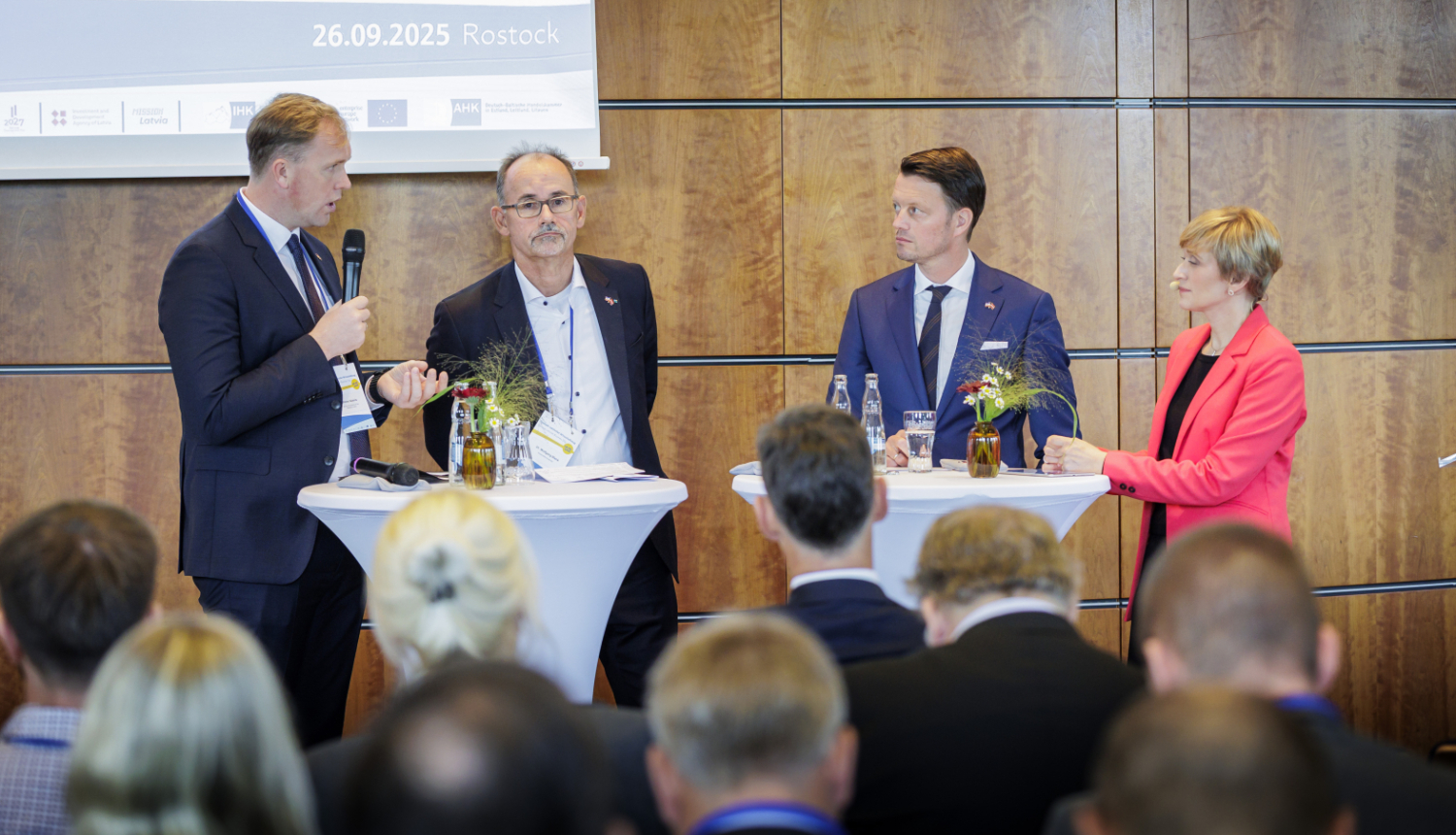BAKU, Azerbaijan, September 26. Latvia and Germany discussed strengthening cooperation in energy, digitalization, and defense technologies projects at the Latvia–Germany Business Day, Trend reports.
The meeting brought together more than 250 companies, academic institutions, and government officials from both countries.
The forum was organized within the framework of Latvia’s largest-ever business delegation to Germany, which included over 180 entrepreneurs from diverse industries.
In their opening remarks, Latvian Prime Minister Evika Siliņa and Mecklenburg–Western Pomerania’s Minister President Manuela Schwesig highlighted the strategic partnership between Latvia and Germany and their shared commitment to strengthening regional resilience through investments in energy, digitalization, and innovation.
Latvia’s Minister of Economics, Viktors Valainis, underscored the scale of the mission, noting that Latvian representatives had met with more than 430 companies in Germany. He pointed to concrete results, including cooperation agreements in the energy and digital sectors and a historic memorandum with Rheinmetall to establish a production facility in Latvia. Valainis emphasized that projects worth more than 1.2 billion euros have already been initiated during this visit, calling it an investment in Latvia’s future, regional security, and Europe’s growth.
The forum featured three parallel sessions focused on the green transition in the Baltic Sea region, digitalization, and dual-use technologies such as drones and defense-related innovations. Companies including Latvenergo, Laflora Energy, RTU, Tet, Tilde, and MilTech Latvia showcased their projects and explored collaboration opportunities with German partners.
Latvian Investment and Development Agency (LIAA) Director Ieva Jāgere stressed the growing interest of German companies in new partnerships, including public–private cooperation in large-scale infrastructure projects such as airports, ports, and urban development.
Examples of Latvian–German cooperation were highlighted, such as collaboration between the ports of Riga and Hamburg on digital innovations, joint projects between Riga Technical University and HafenCity University in sustainable urban development, and Aerones’ plans to consider Hamburg as its Central European base. Partnerships between Laflora Energy and Nordex Energy in wind power development and Nordic Homes’ modular housing project in Hamburg were also presented.
The trade mission was organized by Latvia’s Ministry of Economics and LIAA, in cooperation with the State Chancellery and the Embassy of Latvia in Germany.







